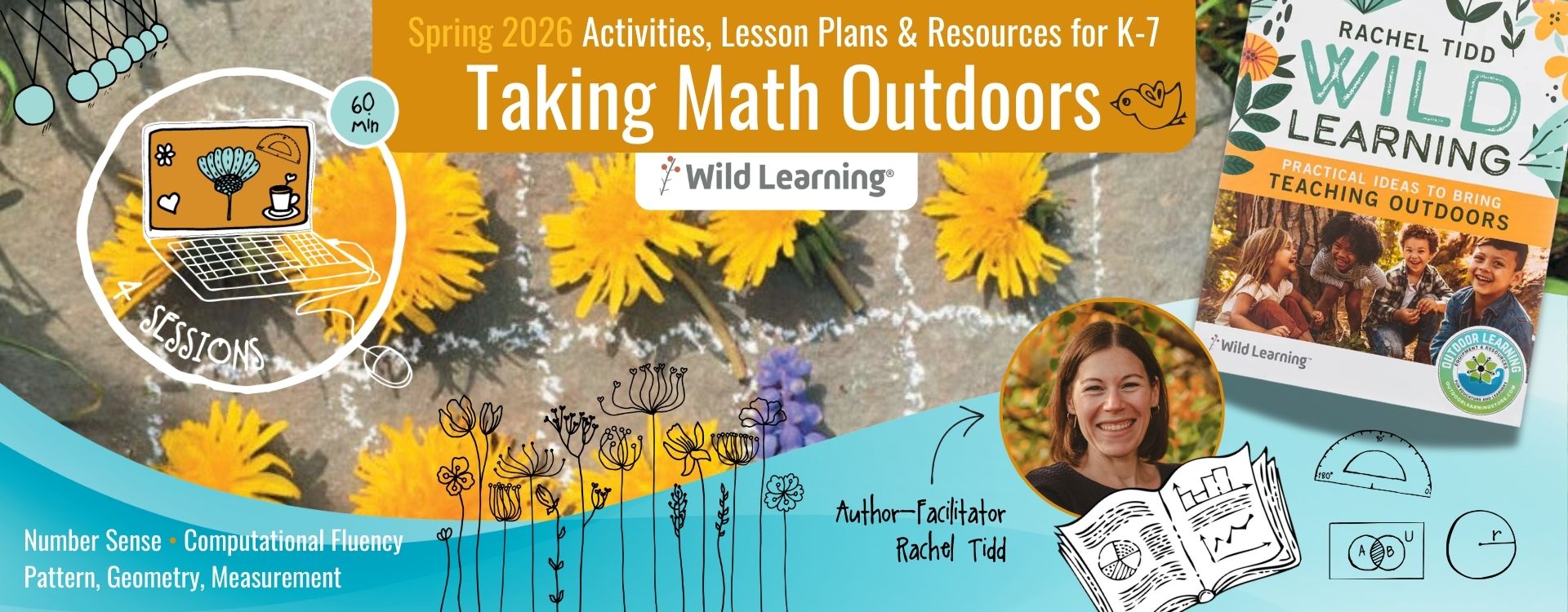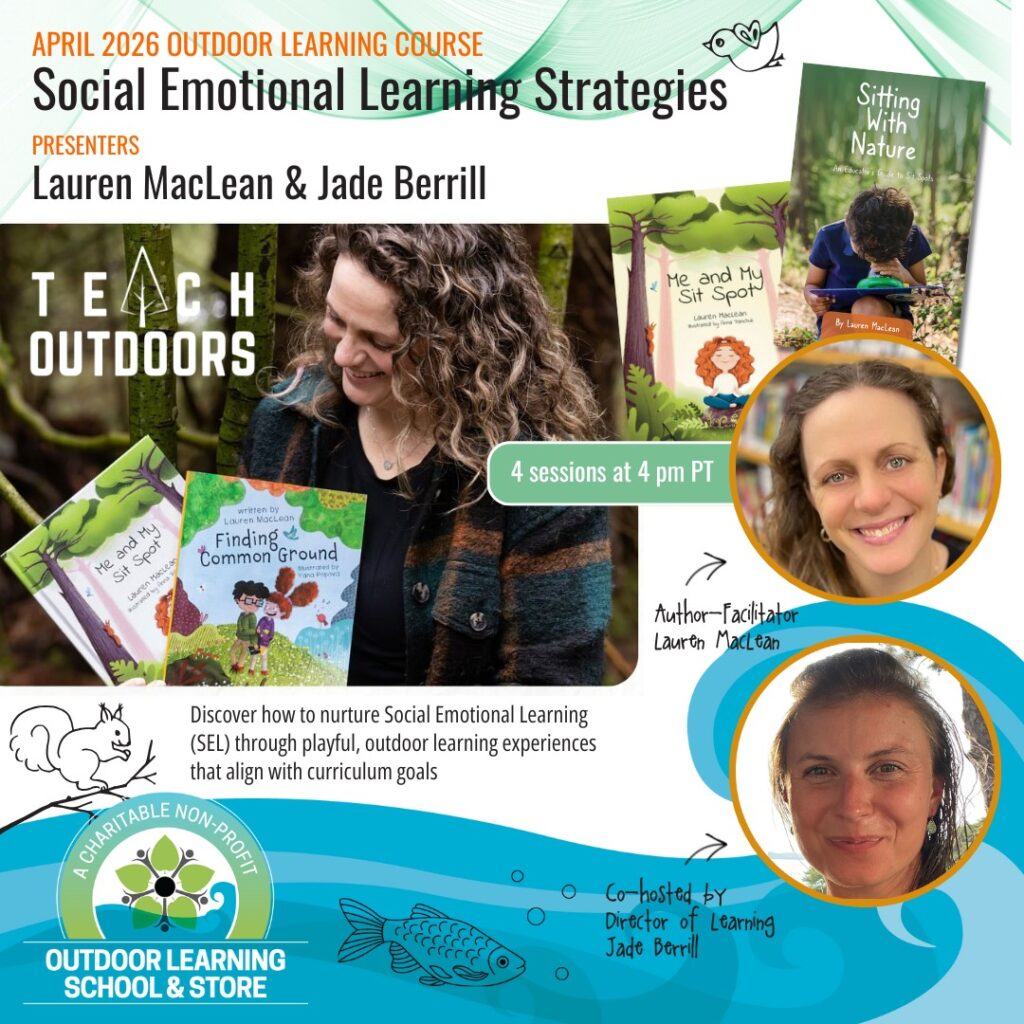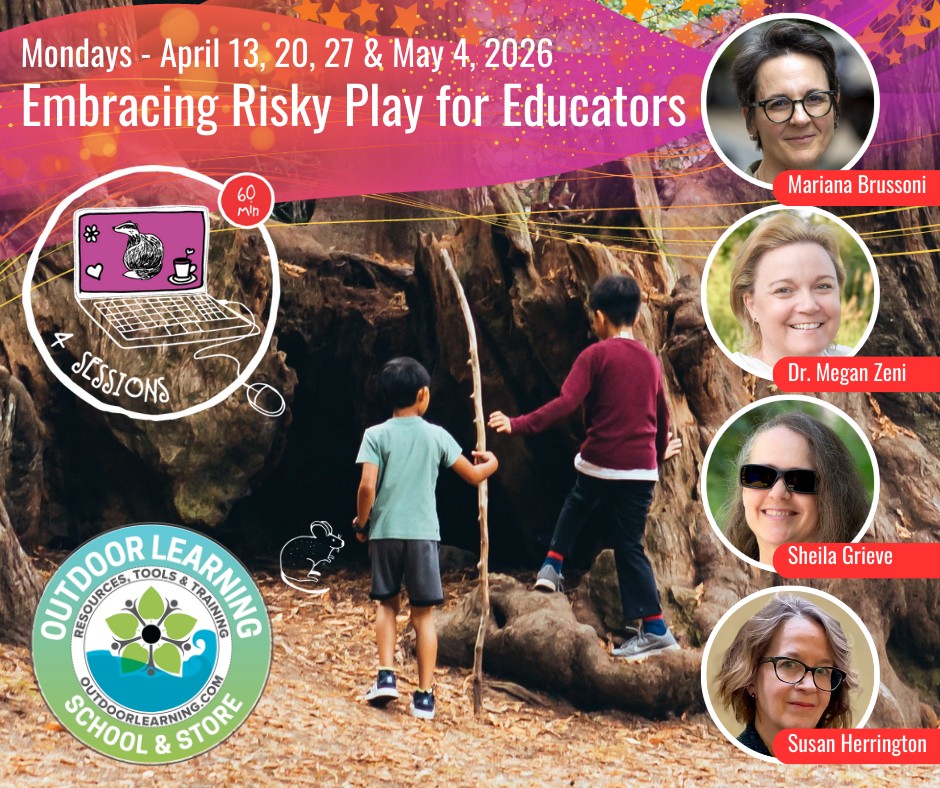Taking Math Outdoors: K-7 Activities, Lesson Plans & Resources
Discover how to take core math concepts outside!
This 4-session course will help educators connect K–7 math curriculum to the natural and built environments through meaningful, hands-on learning.
Each session, facilitated by Rachel Tidd, focuses on the progression of mathematical thinking across grade levels in key areas, such as number sense, computational fluency, geometry, and data literacy.
Together, we’ll examine how outdoor and community spaces can deepen understanding, strengthen problem-solving, and make math more engaging and relevant for students. Participants will leave with practical strategies and examples they can use right away to support flexible, fluent, and connected mathematical thinkers.
Please email accessibility@outdoorlearning.com to let us know if there are any accessibility barriers you face to being included or participating in this course, and we will do our best to accommodate them.
This course includes:
- 4 x 60 Minute Sessions at 4pm Pacific / 7pm Eastern time on March 4, 11, 18 & 25
- These will all be recorded, with the recordings made available to registrants the day after the live session for those who can’t attend live.
- All registrants will receive a Certificate of Completion
Facilitator: Dr. Rachel Tidd
Dr. Rachel Tidd is passionate about using outdoor and place-based learning to enrich literacy and math instruction. She is the author of Wild Learning: Practical Ideas for Bringing Teaching Outdoors and the creator of the Wild Math® and Wild Reading® curricular resources.
A former elementary special education teacher, she earned a Master’s in Elementary and Special Education and a Doctorate in Sustainability Education. Her doctoral research examined how critical literacy can serve as a practical and empowering pathway for integrating sustainability into elementary English Language Arts instruction in Canadian schools.
Session #1: Number Sense
Students with strong number sense think flexibly and fluently about numbers and quantities. Number sense involves understanding numbers, the ways they can be represented, and the relationships among them. In this session, we’ll explore how to develop these foundational skills outdoors through rich mathematical tasks that invite students to represent, compare, and reason about numbers in the context of the natural world and their local community.
Session #2: Computational Fluency: Addition & Subtraction facts and multidigit
Students with computational fluency can efficiently and accurately solve problems while choosing strategies that make sense for the situation. In this session, we’ll explore how to build both basic and multidigit addition and subtraction fluency through hands-on, outdoor tasks that use natural materials and real-world contexts to help students recognize patterns, compare quantities, and apply flexible strategies in meaningful ways.
Session #3: Computational Fluency: Multiplication and Division facts, multidigit, Fractions, Decimals
We will continue our exploration of computational fluency with multiplication and division by finding real-world examples of groups, sets, and arrays in outdoor and urban spaces. Using natural materials and place-based contexts, we’ll also build a deeper understanding of fractions and fraction operations through meaningful, hands-on experiences.
Session #4: Pattern, Geometry & Measurement
In this session, we’ll investigate how outdoor experiences in various settings can help students describe shapes, patterns, and positions using mathematical language and numerical measurement. We’ll also explore ways students can apply their foundational math skills to collect, communicate, and discuss real-world data drawn from both natural and built environments.
Your contribution:
- Early Bird Registration: $120 ($30/session) until Feb 28 – please select this option if you are able to
- 50% Discounted Registration: $60 ($15/session) – please select this option if price is a barrier
- 25% Additional Discount: For groups of 5 or more using this code at checkout: N945QEAF
- For groups of 10 or more, we can offer larger group discounts. Please check out the group rates here, and email programs@outdoorlearning.com for more info and to register.
Your course fee goes towards supporting our charity in covering the course costs, including ensuring that we compensate the course instructors adequately, and that we can continue to offer learning opportunities like these.

















